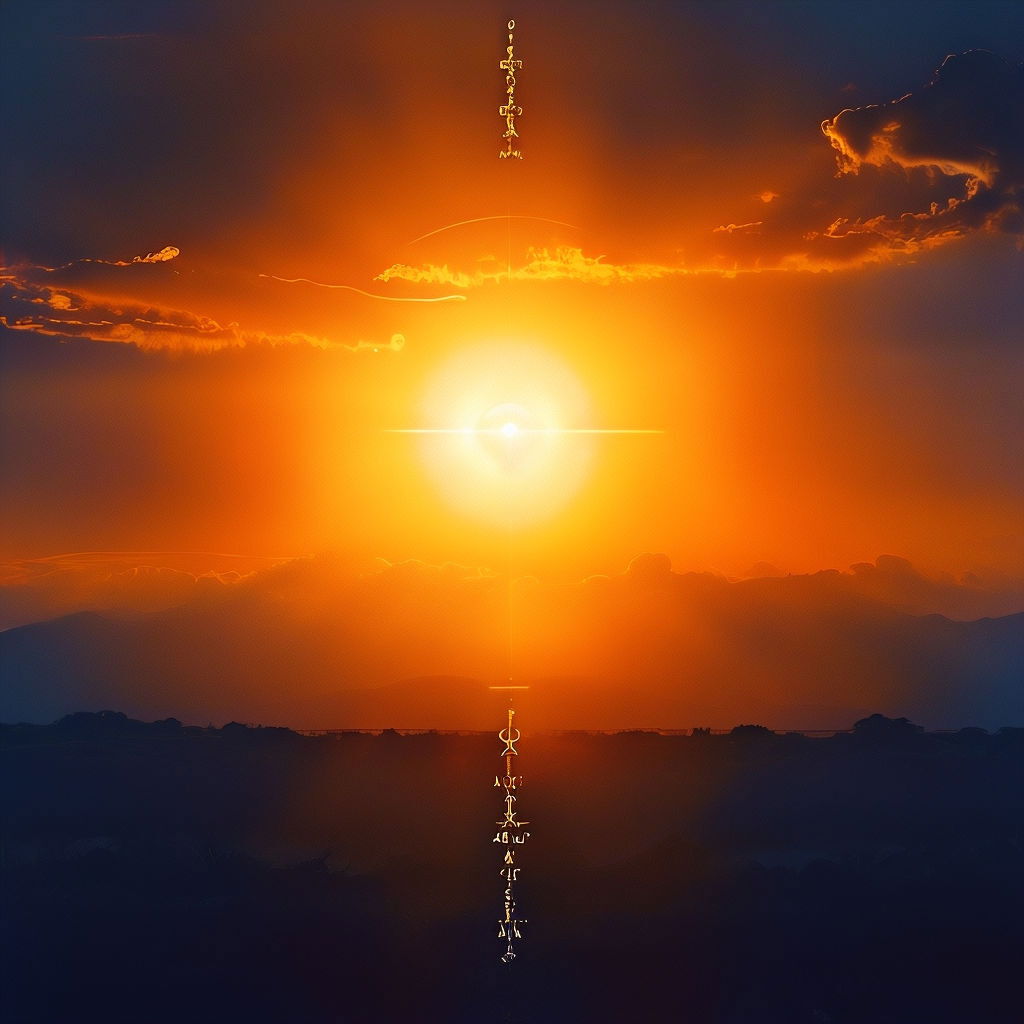Gnosis Through Play: Embracing the Cosmic Playground

In the search for enlightenment and spiritual wisdom, many of us take a serious, methodical approach. We meditate, study sacred texts, and pursue strict disciplines to gain *gnosis*—that deep, intuitive understanding of spiritual truths. But what if the path to enlightenment wasn’t through struggle and solemnity, but through joy, spontaneity, and play? Alan Watts, the philosopher who treated life as a dance and a cosmic joke, believed that *gnosis* is not something we achieve through rigid effort. Rather, it is something we *remember* through the art of play.
In this article, we’ll explore the idea that true spiritual knowledge, or *gnosis*, is found not by escaping the world or transcending it, but by engaging with it playfully. Life, Watts suggested, is a cosmic playground—a holographic projection where the divine spark of creation shines through every moment, inviting us to explore and delight in its boundless forms. Enlightenment, then, is not a destination, but a joyful realization that life itself is a game, and we are its players.
The word *gnosis* comes from the Greek term for knowledge, but it refers to something much deeper than intellectual understanding. *Gnosis* is the kind of knowledge that arises from direct experience, an inner knowing that transcends language or logic. It is the moment when we see past the illusions of the material world and recognize the interconnectedness of all things—the divine spark within ourselves and the universe.
However, this state of knowing is not something we can reach by forcing it. We can’t analyze or dissect our way to *gnosis*. As Watts pointed out, the more we try to grasp the mystery of existence, the more elusive it becomes. *Gnosis* comes when we stop trying so hard—when we let go of our need to control and simply allow ourselves to *be* in the world. And one of the most effective ways to do this is through play.
In modern society, play is often relegated to the realm of childhood, something we outgrow as we take on the serious responsibilities of adulthood. But what if we’ve got it backward? What if play is not only essential to spiritual development, but the *most* direct path to enlightenment? Watts argued that when we approach life with a sense of playfulness, we enter a state of flow—a state of being where we are fully present, engaged, and open to the world around us. This, he believed, is where *gnosis* begins.
Play is a way of reconnecting with our inherent freedom. It allows us to step outside the rigid structures of thought and social conditioning, to experiment, explore, and create. Whether it’s through movement, art, music, or conversation, play puts us in touch with the deeper currents of life. We stop taking everything so seriously, and in doing so, we make space for spontaneous moments of insight—the kind of insights that reveal the interconnectedness of all things.
In play, there is no striving for results. There is no pressure to succeed or fail. There is only the joy of engagement, of being fully absorbed in the present moment. This is where the divine spark—the essence of the universe—becomes visible. In moments of play, we glimpse the holographic nature of reality, where every part reflects the whole, and we are reminded that life is an intricate dance of energy and consciousness.
The idea that reality is holographic has gained traction in both spiritual and scientific circles. A hologram is a three-dimensional image that contains the entire picture within each fragment. If you break a hologram into pieces, each piece still contains the whole image, though at a smaller scale. This is a powerful metaphor for the nature of the universe. Every part of reality—every person, every moment, every experience—contains the divine essence of the whole.
Watts embraced this idea, suggesting that life is like a cosmic game, where every individual is both a player and a reflection of the greater whole. The universe is a playful exploration of itself, a continuous unfolding of possibilities. In this holographic reality, *gnosis* is not something hidden or distant. It is always right in front of us, waiting to be rediscovered through the act of play.
When we play, we stop looking for answers outside of ourselves and realize that the answers are already within us. The joy we feel in moments of spontaneous creativity or laughter is a reminder that we are part of the divine dance, and that the divine spark is always present within us. The more we play, the more we awaken to this truth, and the more we realize that life is a cosmic playground, where enlightenment is not a goal to be reached but a state of being to be lived.
One of the most profound aspects of Watts’ philosophy is his belief that enlightenment is not a somber or overly serious pursuit. On the contrary, he believed that laughter and joy are some of the clearest signs that someone is on the path to awakening. After all, to see life as a cosmic game is to recognize its absurdity—to laugh at the idea that we ever thought we could control or fully understand it.
In moments of laughter, the ego relaxes, and we experience a kind of freedom that is hard to achieve through any other means. We stop taking ourselves so seriously and allow ourselves to be swept up in the flow of life. Watts suggested that this playful, lighthearted approach to existence is far more effective in leading to *gnosis* than any rigid spiritual practice.
This doesn’t mean that life is without challenges or difficulties, but it means that even in the midst of struggle, we can approach our experiences with a sense of curiosity and play. We can laugh at the unpredictability of life, and in doing so, we can awaken to the deeper truths that lie beneath the surface.
At the heart of this cosmic playground is the *divine spark*—the essential, creative energy that animates all of existence. This spark is not something outside of us; it is the very essence of who we are. But we often forget this, becoming caught up in the seriousness of life’s demands and forgetting that we are participants in a grand, playful dance.
Watts reminded us that the divine is not distant or unreachable. It is here, now, in every moment of our experience. To access it, we need only shift our perspective. Instead of seeing life as a problem to be solved or a goal to be achieved, we can see it as a game to be played. This doesn’t mean we ignore our responsibilities or retreat into fantasy, but it means we approach life with a sense of wonder, joy, and openness to the unknown.
In this way, *gnosis* arises naturally. It doesn’t come from straining toward some imagined spiritual goal; it comes from relaxing into the flow of life, from embracing the unpredictability of the cosmic game, and from remembering that we are both the players and the game itself.
In a world that often emphasizes seriousness, achievement, and control, the idea that *gnosis* could be found through play may seem radical. But Alan Watts believed that play is the most direct path to spiritual awakening. When we approach life as a cosmic playground, we reconnect with the divine spark within us, and we open ourselves to moments of profound insight and joy.
Through play, we remember that life is not something to be conquered or figured out, but something to be explored, experienced, and enjoyed. The universe is constantly inviting us to join in its dance, to laugh at the absurdity of existence, and to rediscover the *gnosis* that comes from being fully present in the game of life.
So, let us embrace the path of play, knowing that it is through joy, spontaneity, and creativity that we awaken to the deeper truths of the universe. In the cosmic playground, *gnosis* is not a distant goal—it is right here, in the act of playing the game.
HOLOSOPHY AS PLAY!
